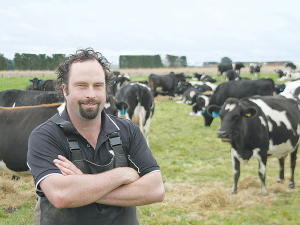Farmers have been airing their concerns to the Government over changes to the Accredited Employer Work Visa scheme.
Federated Farmers dairy chair Richard McIntyre says farmers aren’t happy with the changes and are worried they won’t have staff for the new season, four weeks away.
“It is fair to say the phone has been off the hook the last few weeks as the changes have caused a lot of concern out there,” McIntyre told Dairy News.
While farmers understand that change is needed, as the record immigration numbers aren’t sustainable, McIntyre points out that the way the changes have been implemented is the issue. It has many farmers fairly confused as to what the changes mean for them.
“Some are pretty anxious that come June the 1st they may not have staff for the new season.”
Feds wrote to the Immigration Minister Erica Stanford two weeks ago expressing concern. A Feds delegation met Stanford last week.
“The Minister understands the concern that the changes have caused and was very open to what we had to say,” he says.
“We have been clear with the Minister that it’s not fair to undermine provincial New Zealand’s labour force to solve an urban infrastructure and unemployment issue.
“There are a few areas we want to continue to talk on, but it is early days yet so it’s about having an on-going dialogue to work through some of the issues that are there.”
Changes announced to the AEWV scheme came into force immediately and will make things a lot harder for farmers bringing in staff from oversees. The changes include a shorter visa length of two years with a maximum continuous stay period of three years, and the introduction of a 12-month stand-down period at the end of the visa.
There are also new minimum requirements when it comes to skills, work experience, advertising roles, and engaging with Work and Income.
McIntyre says Federated Farmers does not support many of these changes as they could put farmers in a difficult and unforeseen situation where they are unable to fill roles on farm.
Staff shortages can have a huge impact on health & safety, mental wellbeing, and animal welfare, he adds. “There is also a risk that the stand-down requirement will create a situation where skilled employees, who farmers have invested in, are picked up by other countries.”


















